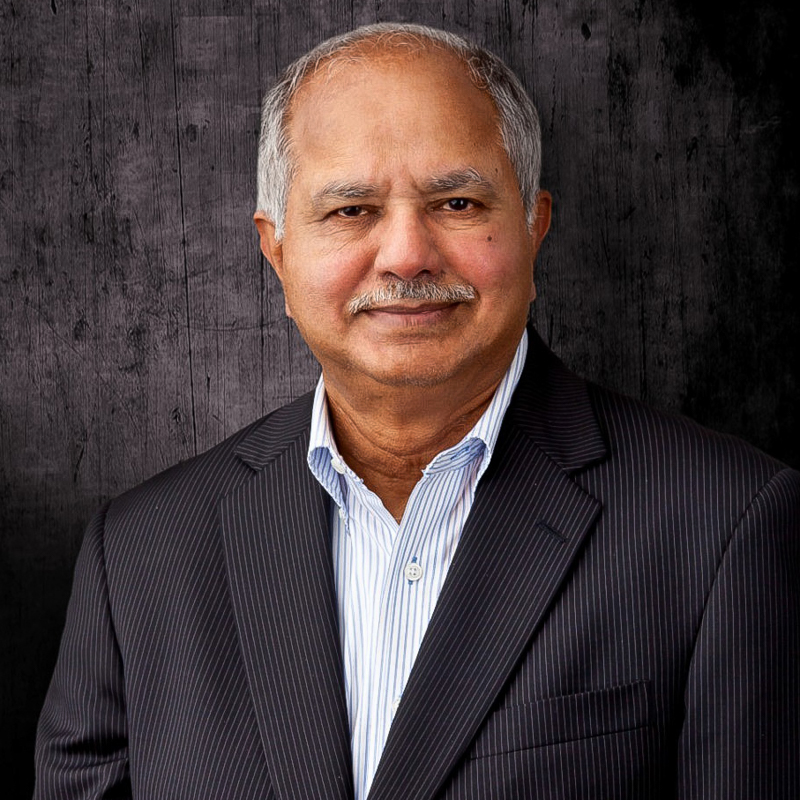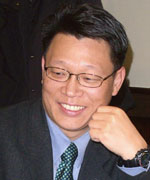
Dr. Raj Reddy
Mozah Bint Nasser University Professor of Computer Science and Robotics, Founder of the Institute for Software Research
5000 Forbes Avenue
Pittsburgh, PA 15213
Bio
Dr. Reddy's accomplishments are legendary. He is a member of the National Academy of Engineering and the American Academy of Arts and Sciences. He was president of the American Association for Artificial Intelligence, 1987-89. He was awarded the Legion of Honor by French President Mitterand in 1984, the Bronze Tower by Korean President Kim Dae-jung in 2002, the ACM Turing Award in 1994, the Okawa Prize in 2004, the Honda Prize in 2005, and the Vannevar Bush Award in 2006. He served as co-chair of the President's Information Technology Advisory Committee under U.S. Presidents Clinton and Bush, 1999-2001.
In S3D, Reddy has led efforts in Carnegie Mellon's Million Book Universal Digital Library projects with India, China, and other countries, and helped establish Carnegie Mellon campuses in Silicon Valley and in Qatar.

Dr. Nicolas Christin
Department Head, Software and Societal Systems
5000 Forbes Avenue
Pittsburgh, PA 15213
Bio
Nicolas Christin is a Professor in the School of Computer Science at Carnegie Mellon University, where he serves as head of the Software and Societal Systems Department. He holds affiliations with the Engineering and Public Policy department, CyLab Security Institute, and the Electrical and Computer Engineering department. His research focuses on computer and information systems security, particularly at the intersection of systems, networking, and policy. Dr. Christin joined the CMU faculty after completing his Ph.D. in Computer Science at the University of Virginia, working at Nortel Networks, and serving as a postdoctoral fellow at UC Berkeley's School of Information.
He has led several major research initiatives in security analytics and online crime modeling, combining economic modeling with network measurements to better understand and disrupt cyber attacks. His work on usable security has produced influential tools including Carnegie Mellon's open-source password meter and neural network-based password cracker. He also conducts significant research in security economics, examining why organizations under-invest in security and developing incentive-compatible solutions to improve cyber defense.
Christin previously served as Associate Director of CMU's Information Networking Institute and was faculty in residence at CyLab Japan in Kōbe. He directed CMU's Societal Computing Ph.D. program from 2019-2024. His research has been published in top venues including USENIX Security, ACM CCS, CHI, and WWW. He has collaborated extensively with industry partners and has made fundamental contributions to understanding the economics of cybersecurity and online criminal behavior. He received his engineering degree from École Centrale de Lille before completing his graduate studies at the University of Virginia. He has authored numerous influential publications in security, human-computer interaction, and economics.

John Kang
Director of Asia Collaboration
5000 Forbes Avenue
Pittsburgh, PA 15213
Bio
Since 2002, John Kang has led S3D's Executive and Professional Education Office to expand the University's international impact through academic programs, executive education and training and corporate relationships. He has been successful in his efforts through building on Carnegie Mellon's existing strengths under the University's Strategic Plan.
Kang has been responsible in the development of collaborative relationships with South Korea, China, Singapore, Vietnam, and other Asian countries. Through building relationships with central and local governments, national research institutes, academia and industry leaders, Kang has led joint efforts in R&D, education and training, national human resource development policy and management.